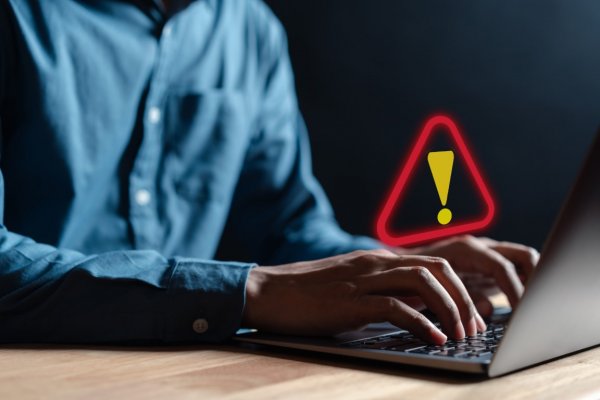We have all had that time where we are using the computer, and it just doesn't seem like it used to. It might be moving at a sluggish speed, or there are pop ups everytime you go to a new site. It just feels different, but you can't remember making any changes. This is where the world of malware and malicious software lives, and it sounds like you might have been infected.
Malware is a major threat to computers, but there are ways to protect your system from these malicious pieces of software. As a cybersecurity expert, I'm here to provide you with the necessary steps needed to keep your computer safe from malware and other cyber threats. With the right understanding and implementation of security measures, you can ensure that your PC remains secure for years to come. In this article, we'll look at how one can effectively protect their computer from malware. So let's get started!
We have taken a look at one company that does offer an Antivirus program that is which is Outbyte and is totally legit. They have both a security program as well as an optimizer, which we will go over at the end here, so if you want to skip this and give them a try we would suggest looking at them.
Before we get into the "Why" of malware let's start at the what. As you can tell by its name, it isn't a great thing to have on your computer. It isn't the end of the world and can be fixed, which we will get to in a bit, but let's really look at what this malicious program could be.
Malware is a term used to describe malicious software that can be found on computers. It can damage data and files, steal passwords or personal information, install unwanted programs, monitor activities without permission, interfere with the normal functioning of your device, and more. Malware comes in many forms, such as viruses, worms, Trojan horses, adware, spyware, ransomware, and rootkits.
Each type of malware has its own unique characteristics, but they all have one thing in common: they are designed to cause harm to your computer or any other digital system you may use. So it might be labeled as a specific infection, or as a virus, or other terms but when we look at Malware we are pretty much looking at a piece of software that you don't want on your computer and that takes actions that aren't good for you or your PC.
Here is a great video from Kaspersky Anti-Virus, which goes over what Malware is and is worth a watch:
So now that we know the "What" when it comes to malware let's move on to the "Why"
Now that we know what Malware is let's look at why malware could be on your computer.
When it comes to preventing infections of your PC the best offense is a good defense and this is why preventative actions are the best way to protect a computer from malware. To begin with, it’s important to keep software and operating systems up-to-date. Outdated versions of popular software can be vulnerable to attack, so regularly checking for updates should be part of any security routine. The next thing that your PC should have is an antivirus program on their computers that can detect malicious activity and prevent it from getting it on your systems. These programs also scan downloads for any suspicious content before allowing them onto the system.
The final way of preventing infections is to be extra careful while you are online. It is best to keep in mind what you are downloading when you are on the internet. Sometimes malicious programs are renamed as files you might want, or attached to spam emails to trick you into downloading them onto your system. As we saw above, the best way to get rid of malicious programs is to prevent them from getting installed on your system in the first place.
These are just some examples of the "why" malware gets on your system as well as a bit of the " how " mixed in there. Now that we have those points covered let's look at the ways that you can remove malware from your PC.
So we know what Malware is, where and how it can get into your system and all that is left is to find out how you can get rid of it? It's just like if you have a cold, you want it gone as soon as possible so you can get back to normal life. When it comes to Malware there are basically two ways to remove it.
Manual Removal of Malware
This is the first way, and to be honest not going to be the easiest. If you are a computer expert this might be right up your ally. You can manually detect all the files related to the infection and remove them, as well as some of the possibly hidden files. This is not generally something that your average DIY computer person will tackle but is an option.
Automatic Removal of Malware
This is the more user-friendly option and one that we would suggest. How you do this is your choice, but it essentially comes down to finding the best Anti Malware, or AntiVirus, program for your needs and installing it. Some malicious programs might block the installation so you will have to do it in safe mode, but once installed we suggest you do a full system scan and remove any programs that it identifies as malicious. We have done reviews of the best AntiVirus programs on the market, so if you are looking for suggestions make sure you check them out.
Now that you have cleaned out the infection you might need to do a little more work to get your system back to how it was. Some people suggest doing a system restore to the point prior to the infection, but that can cause some issues in the system if you are not familiar with the tool.
This is why we would suggest looking at a system optimizer that can help to optimize your system. Over the years they have continued to evolve and offer a lot of different features that can help. Gone are the days when they are simple registry cleaners and defragmenting programs, and now there are some with so many features they should come with a user manual. One of the easier to use ones, as we mentioned above, is Outbyte PC Repair , which our team really liked.
There have been some reviews on our site, and other optimization guides, that can help with the questions that you might have with them so please check them out if you have any questions.
Malware is a serious issue that can have a devastating effect on your computer and overall is just a pain to deal with. It’s important to take proactive steps to protect yourself from malware and other malicious software. Cautious internet actions, anti-virus software, and regular system maintenance are all essential components of any successful cybersecurity strategy.
By following through with good security practices, you’ll be able to sleep soundly knowing that your data is safe from harm. And as we said above, sometimes the best offense is a strong defense. So if you prevent infections you will never have to deal with removing malicious programs, or any of the impact that they might have on your computer.
Our digital interactions are increasing every day and it seems that being online will be something that people do more and more as technology continues to evolve. So ensuring your cyber security will only get more and more important, so don’t wait until it’s too late—make sure you’re doing everything possible to keep your systems free of malware today! If you follow the points in this guide, you will enjoy complete peace of mind when it comes to keeping your computers secure. And if you have other questions, make sure you check out our other guides on getting your PC back up to speed and being safe while online.





